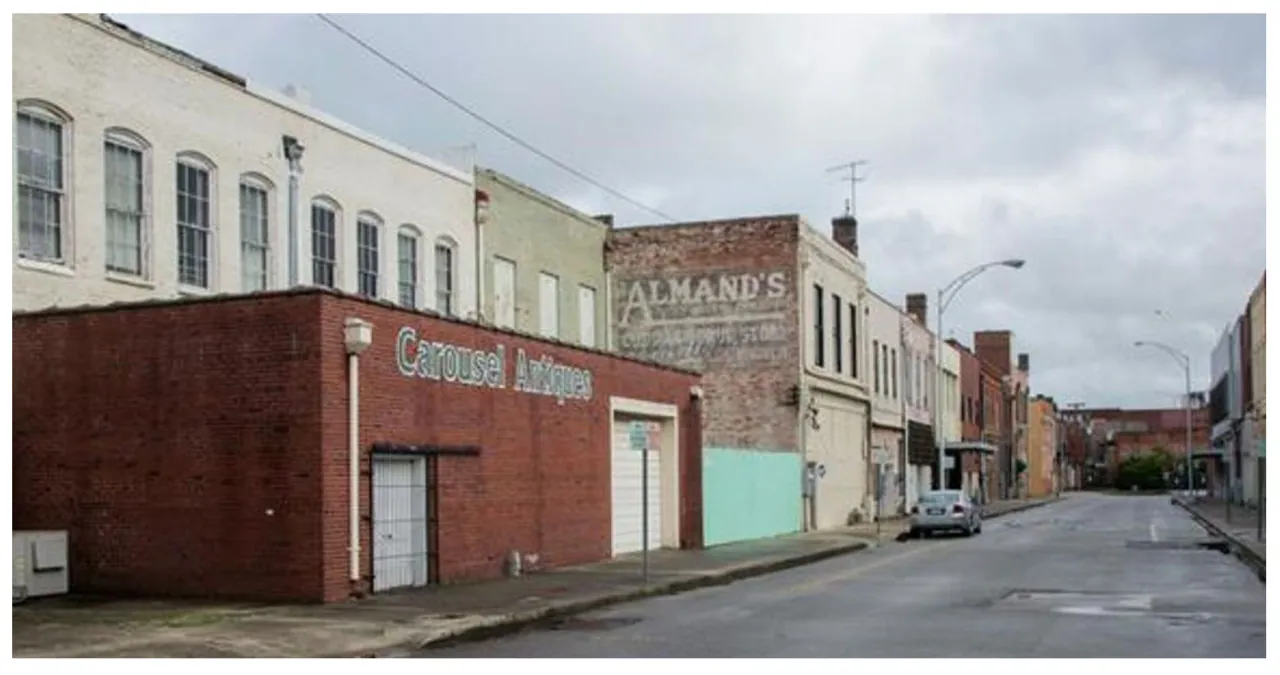Nestled among the picturesque landscapes and vibrant communities of North Carolina lies a city that has been quietly battling a lesser-known issue: depression. When it comes to mental health, many might assume that bustling metropolises or economically challenged areas bear the brunt of this silent struggle.
However, as we delve deeper into the complexities of mental wellness, we come to realize that depression can touch any corner of society. So, can you guess which city in North Carolina is most affected by this pervasive condition? The answer may surprise you, shedding light on an often overlooked aspect of the state’s social fabric.
The Most Miserable City in North Carolina Has Been Revealed
Rocky Mount has been crowned as the most miserable city, according to recent findings. Keep reading to discover more about this unfortunate title. Rocky Mount, with a population of 54,341 residents according to the 2020 census, stands as the 20th most populous city in North Carolina. Situated just 45 miles east of Raleigh, the state capital, this vibrant city offers a convenient location for its residents.
Rocky Mount’s reputation as the most miserable city in North Carolina begs the question: what factors contribute to this unfortunate distinction? As highlighted in the article, financial difficulties may play a significant role in this designation. According to recent data from the Census Bureau, around 18.9% of the city’s population resides below the poverty line. The median household income for families in this area is a mere $46,396, which is considerably lower than the national average of $70,786.
The city is also facing challenges in terms of crime. According to recent data, Rocky Mount has a higher violent crime rate of 45.1, compared to the national average of 22.7. Moreover, the property crime rate in Rocky Mount is 64, which is significantly higher than the national average of 35.4. This puts residents of Rocky Mount and its surrounding areas at a greater risk of being victims of crime compared to other parts of the country.
Unraveling the Depths of Depression in North Carolina
Financial Woes: A Bleak Landscape of Scarcity
Poverty paints a grim picture in Rocky Mount, with close to 19% of its population grappling with its harsh realities. The median household income, at $46,396, falls far short of the national average, leaving families stretched thin. Jobs are scarce, particularly high-paying opportunities, trapping residents in a cycle of financial precarity. The dream of upward mobility seems distant, shrouded in the fog of economic hardship.
Crime: A Constant Threat, a Lingering Fear
The specter of crime looms large in Rocky Mount. Violent crime rates soar at 45.1, nearly double the national average, while property crime, at 64, echoes a similar alarming disparity. Fear becomes a constant companion, casting a dark shadow over daily life. Children playing in parks, teenagers returning home from school, elderly folks taking quiet walks – all vulnerable to the ever-present possibility of violence, casting a chilling pall over the community.
Beyond Statistics: The Human Cost of Despair
But statistics are mere numbers on a page. They fail to capture the human cost of depression, the silent scream of hopelessness echoing in the hearts of individuals and families. Mental health issues flourish in an environment devoid of economic security and riddled with the constant threat of violence. The lack of resources, limited access to quality healthcare, and the stigma surrounding mental illness create a vicious cycle, trapping individuals in a web of despair.
Beyond Misery: Glimmers of Hope and Resurgence
Yet, even in the darkest corners, flicker glimmers of hope. Community initiatives are sprouting, spearheaded by individuals determined to rewrite the narrative. From food banks addressing hunger to youth programs offering safe havens and mentorship, the spirit of resilience refuses to be extinguished. Local businesses are banding together, fostering economic collaboration and job creation. These are nascent flames, fragile yet defiant, challenging the darkness that engulfs Rocky Mount.
Moving Forward: A Call to Action
Rocky Mount needs more than labels. It needs action. Investments in infrastructure, education, and job creation are crucial. Mental health resources and support systems must be readily available and accessible. Community-driven initiatives need to be fostered and empowered. Above all, Rocky Mount needs a chance, a belief in its potential to rise above its current circumstances.
This is not merely an issue for Rocky Mount to bear alone. It is a stark reminder of the systemic inequalities that plague our society. Addressing the challenges faced by Rocky Mount necessitates a collective effort, a commitment to tackling issues of poverty, crime, and lack of opportunity at their roots.
Conclusion
Rocky Mount’s story is not just about statistics and labels. It’s about human lives, about the resilience of the human spirit. It’s a call to action, an urgent plea to recognize the complexities of despair and the power of hope. By acknowledging the struggles, supporting community initiatives, and advocating for systemic change, we can help rewrite the narrative of Rocky Mount, transforming it from a city labeled “miserable” to a beacon of resilience and hope.
Additional Sources:
- U.S. Census Bureau: https://www.census.gov/quickfacts/fact/table/rockymountcitynorthcarolina/PST045222
- Data USA: https://datausa.io/profile/geo/rocky-mount-nc-31000US40580:
- AreaVibes: https://www.areavibes.com/rocky+mount-nc/livability/
- City-Data: https://www.city-data.com/forum/north-carolina/73182-rocky-mount.html
- North Carolina Department of Health and Human Services: https://www.ncdhhs.gov/
- Mental Health America: https://mhaofcc.org/
Also Read:
- Unmasking the Most Depressed City in New Jersey – The Details Will Leave You Speechless
- Can You Guess Which City in Washington Is the Most Depressed? The Answer Will Stun You!
- People Are Leaving These 7 New York Towns As Quickly As They Can -Escaping from the City




I wonder if the writer of this article ever really lived in Rocky Mount NC? I do and I love my hometown. Sure we have problems and concerns but most places do. Sure you used statistics, but one thing I know about statistics is you can prove anything you want with them . I live here and NOT depressed.